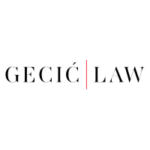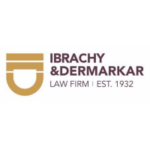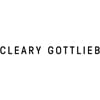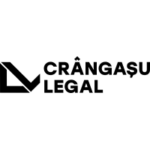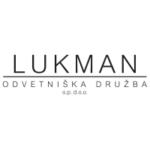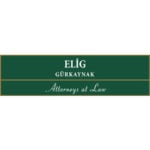-
Overview
Chapter 7 of the Act Against Restraints of Competition (ARC) (Gesetz gegen Wettbewerbsbeschränkungen – GWB) contains the provisions relevant for German merger control. The Federal Cartel Office (FCO) (Bundeskartellamt) enforces merger control rules in Germany.
Concentrations within the meaning of Sec. 37 ARC require mandatory approval before completion, if the parties involved in a transaction (undertakings concerned) meet certain turnover thresholds or if the transaction value exceeds EUR 400 million, as laid down in Sec. 35 ARC. The FCO prohibits notifiable transactions that significantly impede effective competition, in particular create or strengthen a market-dominant position.
If the target does not generate turnover or runs no substantial operations in Germany, notification and clearance in Germany are not required. However, the creation of a joint venture, even if located outside of Germany, may be subject to German merger control solely on the basis of the parents’ German turnover (on the basis of the “fictional partial merger of the parent companies” (Fiktion der Teilfusion der Mütter)).
The undertakings concerned are usually the acquirer and the target. If the seller continues to jointly control the target or keeps a shareholding of 25 per cent or more post-transaction, the seller will also be qualified as an undertaking concerned and its turnover will be included when calculating relevant turnover thresholds. All undertakings concerned are responsible and liable to file a notifiable transaction to the FCO, including the seller in cases where assets or shares are sold.
It is a specific feature of German merger control regulation that the Minister for Economic Affairs and Energy may clear a merger even after the FCO has denied clearance (Ministererlaubnis). This political assessment may be based on extra-competitive grounds, such as political and socio-economic considerations. However, merger clearance on the basis of ministerial intervention is rather rare.
As regards recent developments, in 2023, the number of merger examinations remained stable in relation to 2022 with approx. 800 reviews conducted. Seven of these projects were scrutinised in second phase. The acquisition of parts of Royal Friesland Campina’s dairy business by the Theo Müller Group was only approved after the parties involved made commitments to divest certain business units. Similarly, an acquisition in the waste management sector (Veolia/Friedrich Hofmann) was only approved under certain conditions. A project in the field of manufacturing and distributing sun and privacy protection products was abandoned due to concerns raised by the FCO (Hunter Douglas/erfal). Four of the second phase cases were approved. In cases that may raise serious competition concerns, the FCO continues to be prepared to engage in detailed pre-filing consultations.
In October 2023, the 11th Amendment to the GWB entered into force. As regards merger control, the amendment provides additional notification obligations in the wake of sector inquiries conducted by the FCO (Section 32f (2) Sentence 1 ARC). The aim here is to be able to better control concentration tendencies in smaller regional markets. Currently, as of now (September 2024), an additional 12th amendment of the ARC is envisaged in the near future. As regards merger control, an increase in revenue thresholds triggering a filing obligation is expected.
-
Is notification compulsory or voluntary?
Filing in Germany is mandatory if the following prerequisites are met:
(i) The transaction qualifies as concentration within the meaning of the ARC,
(ii) the turnover of the undertakings concerned exceeds the statutory thresholds,
(iii) no exception applies and
(iv) the transaction is not subject to EU Merger Control.
In addition, as mentioned above, the 11th Amendment to the GWB has implemented a new Section 32f (2) Sentence 1 ARC, which provides additional notification obligations following sector inquiries. If the sector inquiry finds that there are “objectively verifiable indications” that “effective competition could be significantly impeded by future mergers” in one or more of the sectors under investigation, companies with group-wide domestic sales of more than EUR 50 million may be obliged to notify – for an initial period of three years – all mergers with companies with a group-wide domestic turnover of more than EUR 1 million.
-
Is there a prohibition on completion or closing prior to clearance by the relevant authority? Are there possibilities for derogation or carve out?
Closing or completion of the transaction is prohibited prior to clearance.
The parties may withdraw their notification at any time unless the FCO has decided on ending the procedure. Such withdrawal ends the merger control procedure automatically.
It is possible to carve out certain assets or subsidiaries in preparation of the transaction as long as the carve out as such does not trigger a separate obligation to file, for example by transferring control to another legal entity. It is important to note that transactions between the same undertakings are treated as one single transaction if they occur within two years.
For foreign-to-foreign mergers, hold-separate arrangements may allow closing prior to clearance if the parties are able to ensure that the closing will have no impact on the German territory. However, in practice, these arrangements are unusual because it is difficult to design hold-separate arrangements in a way that clearly excludes competitive effects in Germany. Similarly to carve-outs, in cases without competitive issues asking for quick clearance may be preferable.
As regards derogations, it is possible to apply to put a concentration into effect prior to clearance. However, in practice this process is rarely used because in non-problematic transactions, a clearance may be granted within a short time frame if the parties argue circumstances requiring quick clearance (e.g. in insolvency cases). In problematic cases, a derogation will hardly be granted anyway.
Therefore, it might be advisable in practice to ask for a quick clearance rather than to apply for a derogation.
-
What types of transaction are notifiable or reviewable and what is the test for control?
There are several types of transactions which qualify as a concentration within the meaning of Sec. 37 ARC. In each case the actual means of acquisition, e.g. by merger, acquisition of shares/assets or universal succession are irrelevant:
Test 1 – Acquisition of all or a substantial part of the assets of another undertaking: If not all assets of an undertaking are acquired, the test is met if the assets acquired represent a perceptible competitive position on the market (e.g. the sale of a dedicated business or an outlet of the seller) and this market position is transferred to the acquirer.
Test 2 – Acquisition of control: The acquisition of direct or indirect control by one or more undertakings over the whole or parts of one or more other undertakings constitutes a concentration under German merger control. The assessment is similar to the European merger control regime.
Control means the possibility to exercise decisive influence on the strategic market behaviour of an undertaking in relation to the appointment of senior management, the budget, the business plan and/or the investment decisions. Control can be acquired by rights, contracts or other means which, individually or jointly, allow to exercise decisive influence. Even long-term contractual agreements, the lease of a business or similar may be sufficient to confer control. In this context, all factual and legal circumstances have to be considered, in particular: ownership or rights to use all or part of the assets of the company, rights or contracts which may influence the composition, voting or decisions of the management bodies of the undertaking etc.
Similar to EU law, the switch from sole to joint control or vice-versa is also considered a concentration.
The object of the acquisition of control can either be a whole undertaking or parts thereof. If the purchaser acquires only parts of another company, the test is fulfilled if the parts represents a competitive market position. This is equivalent to test no. 1.
In practice, even a minority shareholding can confer (sole) control of the minority shareholder if the amount of voting shares secure majority in the annual general meeting of a stock company. Such a situation is common if there is a high degree of free float. In such cases, shareholdings below 50% may be sufficient to exercise control in an annual general meeting where usually (i.e. within the last three years) the participation in such meetings is rather low.
Test 3 – Acquisition of 25% or 50%: The acquisition of either (i) 50% or (ii) 25% of the shares or voting rights in another undertaking constitutes a concentration under German merger control. Shares or voting rights previously held by the acquirer are added. With this test, in contrast to European merger control law and other national laws, the acquisition of minority shareholdings below the level of control constitutes a concentration. The test is also fulfilled in case of a formation of a joint venture if the shareholding meets the threshold of 25% or 50% respectively.
Test 4 – Acquisition of material competitive influence: This type of concentration covers the acquisition of minority shareholdings of less than 25% of the shares or voting rights. The actual percentage of shares to be acquired is not decisive in this context, so that even the acquisition of minor shareholdings (e.g. less than 10%) can trigger merger control. Purchaser and target must be active on the same market, on up- or downstream markets or neighbouring markets. Moreover, the influence must possibly have an effect on the way the target competes on the market. It requires – in addition to the acquisition of shares – some “plus factors” which confer this competitive influence. Such plus factors could be: e.g. the right to appoint a member of the supervisory board, superior knowledge of the market and the business of the target by the acquirer, information rights or similar factors that significantly strengthen the acquirer’s influence.
Test 5 – Creation of a joint venture: Apart from the acquisition of sole or joint control which is already covered by test no. 2, the German merger control regime provides for another provision dealing with the creation of a joint venture. According to this test, the acquisition of 25% or more of the shares or voting rights in the target will be considered a (partial) merger of all undertakings which hold 25% or more of the shares or voting rights in the target company after the transaction. One of the effects of this test is that not only the acquirer and the target but all other undertakings with a shareholding of 25% or more are considered as undertakings concerned. Therefore, for the assessment of the financial thresholds, the turnover of all of those companies has to be considered as well.
German merger control covers both full-function and non-full-function JVs. Therefore, the creation of a non-full-function JV may also be notifiable in Germany.
In addition to merger control, all cooperative aspects of the joint venture are reviewed under the restrictive practices provisions of the ARC (§§ 1 et seqq.). The review may take place even after clearance by the FCO. Joint ventures raise issues if they lead to coordination between the shareholding companies, especially if they continue to compete in the same markets as the joint venture. Violations are mostly avoided if (i) it is a full-function joint venture operating as a separate market participant; (ii) the shareholding companies are not active in the joint venture’s relevant product market and (iii) the joint venture is not predominantly active in upstream or downstream markets from its shareholding companies’ activities.
If credit institutions, financial institutions or insurance companies acquire shares in another company for the purpose of reselling, this does not constitute a merger as long as they do not exercise the voting rights of the shares and if they are sold within one year. This deadline may be extended by the Federal Cartel Office upon request, if there is sufficient proof that the sale would have been unreasonable within the time limit.
-
In which circumstances is an acquisition of a minority interest notifiable or reviewable?
Minority interests are caught by German merger control in certain situations.
First, the acquisition of a minority interest may constitute a concentration if the minority shareholder acquires sole or joint control in the target company.
This requires usually that the minority shareholder gains certain veto rights regarding strategic decisions (i.e. appointment of senior management, the budget, the business plan or strategic investments). The approach to assessing control is comparable to EU law (see Test 2 above).
Secondly, the acquisition of 25% or more of the shares or voting rights (see Test 3 above) and the acquisition of a material competitive influence may trigger German merger control (see Test 4 above).
-
What are the jurisdictional thresholds (turnover, assets, market share and/or local presence)? Are there different thresholds that apply to particular sectors?
There are global and domestic thresholds. An obligation to file is triggered in two different cases:
Test 1:
- all undertakings concerned exceed, added together, a total (global) turnover of EUR 500 million;
- one of the undertakings concerned exceeds domestic turnover of EUR 50 million and
- another undertaking concerned exceeds domestic turnover of EUR 17.5 million.
Test 2:
- all undertakings concerned exceed, added together, a total (global) turnover of EUR 500 million;
- the domestic turnover of one undertaking concerned in the prior fiscal year exceeded EUR 50 million;
- neither the target nor another undertaking concerned (undertaking from bullet 2 is excluded) exceeded domestic turnover of EUR 17.5 million.;
- the value of total compensation for the transaction exceeds EUR 400 million and
- the target has substantial business activities in Germany.
- The FCO and the Austrian Competition Authority have published an English version of the Guidance on Transaction Value Thresholds in January 2021. The revised Guidelines, which were initially published in July 2018, aim to provide further guidance and examples on how to interpret the then newly introduced transaction value thresholds under German (and Austrian) merger control law. So far, the FCO did not often resort to the transaction value threshold to assume its jurisdiction; it did so, however, in the 2020 Paypal/Honey case concerning a free browser extension that automatically finds and applies promotional and discount codes in online shops, as well as in the 2021 Meta/Kustomer case.
Test 3: The FCO may now, according to the new Section 32f (2) ARC, request the notification of any concentration from a certain company if the following prerequisites are met:
- The transaction concerns a business sector where the FCO has conducted a sector inquiry in the meaning of Section 32e ARC
- The company generated a domestic turnover of more than € 50 million in the last business year
- There are objective “objectively verifiable indications” that “effective competition could be significantly impeded by future mergers” in one or more of the sectors, and
- The acquired undertaking must have generated a domestic turnover of more than € 1 million.
- Test 3 is primarily aimed at step-by-step acquisitions that lead to widespread market concentration and which were exempt from merger control in the past.
Undertakings concerned (i.e. the companies whose turnover has to be taken into account for the assessment) are the acquirer and the target (or the turnover attributable to the target). Relevant for the calculation of the turnover of the purchaser is the consolidated group turnover (without intra-company sales or VAT). The turnover of the seller is usually not relevant for the calculation unless
(i) the seller remains a controlling or jointly controlling shareholder of the target
(ii) or maintains a shareholding of 25% or more in the target after the transaction.
In such cases the turnover of the seller has also to be taken into account for the assessment. The same applies for all shareholders whose shareholding in the target amounts to 25% or more post-transaction.
If the direct acquirer of control is itself jointly controlled by two or more undertakings, it has to be analysed in greater detail whether all jointly controlling companies which acquire indirect joint control have to be considered individually as undertakings concerned or if only the turnover of the direct acquirer (including the turnover of its controlling companies) has to be included.
The thresholds can be exceeded even if the parties involved do not have overlapping or competing activities in Germany. However, transactions above thresholds that have no “appreciable effects” within the territory of Germany are exempt from the notification requirement. Given that the term “appreciable effects” is interpreted rather widely, in most cases, in practice, if the turnover thresholds are met, the transaction is likely to also have appreciable effects on the German territory, in particular if Germany is part of the relevant geographic market.
The thresholds may be influenced indirectly as there are multipliers for certain industries which are applied to the turnover before assessing whether the turnover exceeds the threshold (see the following section).
-
How are turnover, assets and/or market shares valued or determined for the purposes of jurisdictional thresholds?
The relevant timeframe is the last fiscal year of the undertakings in question. VAT and intra-group turnover will not be taken into account. Turnover is calculated based on German accounting principles as laid down in Sec. 277 Commercial Code (Handelsgesetzbuch (HGB)). According to the 10th amendment of the ARC, the FCO will also accept other internationally recognised methods (e.g. IFRS) for calculating turnover if the undertaking concerned uses these for its regular accounting.
For Germany, the allocation rules are similar to those of the European Union. Therefore, the general rule is that turnover should be attributed to the place where the product is delivered or the service provided, i.e. in most cases where the customer is located. For financial institutions, the turnover is to be allocated to the branch or division established which receives the relevant income.
If undertakings that are active in certain industries are involved in the merger, the actual turnover is multiplied or divided to determine the value used in the threshold test:
- A multiplier of four is applied to the turnover of an undertaking that edits, produces, distributes newspapers, distributes or produces broadcasting programmes or sells time for advertisement in broadcasting.
- Turnover resulting from the mere trading of goods (i.e. the products are purchased and sold only) is to be taken into account by 75% only.
- The calculation of relevant turnover values in the banking and insurance sector is focused on the income side (i.e. financial income and premium income) instead of the usual turnover value.
-
Is there a particular exchange rate required to be used for to convert turnover thresholds and asset values?
The Federal Cartel Office accepts only the average exchange rate of the European Central Bank.
-
In which circumstances are joint ventures notifiable or reviewable (both new joint ventures and acquisitions of joint control over an existing business)?
The rules for merger control apply to joint ventures as well. Forming new joint ventures is covered as well as any significant transfer of assets to an existing JV. German merger control does not treat full-function and non-full-function JVs differently. As long as parent companies and/or the JV exceed the relevant thresholds and the transaction is considered a concentration, the transaction is subject to merger control. In this regard, we refer to the more detailed explanations provided to Question 4 above, under “Test 5”.
-
Are there any circumstances in which different stages of the same, overall transaction are separately notifiable or reviewable?
Transactions between the same groups are treated by German law as one single transaction if they occur within a time period of two years.
-
How do the thresholds apply to “foreign-to-foreign” mergers and transactions involving a target / joint venture with no nexus to the jurisdiction?
German merger control applies to foreign-to-foreign mergers if the merger has an appreciable (spürbar) impact on domestic competition. This is always the case if the revenues of the undertakings concerned exceed the domestic turnover thresholds, or, in case of application of the size-of-transaction test, with the target having significant business activities in Germany (e.g. appreciable market shares).
-
For voluntary filing regimes (only), are there any factors not related to competition that might influence the decision as to whether or not notify?
Not applicable.
-
What is the substantive test applied by the relevant authority to assess whether or not to clear the merger, or to clear it subject to remedies? Are there different tests that apply to particular sectors?
The basic test is whether a merger would result in a significant impediment of effective competition and whether a dominant market position may result from, or further increase by, the merger. A detailed summary of the FCO’s approach can be found in the Guidance on Substantive Merger Control provided on the FCO’s website.
A dominant position on the market exists if one or more undertakings have no competitors at all, are not subject to material competition or are in a superior market position that enables acting independently from competitors, customers and other market participants. As a market share of 40% is sufficient for a rebuttable statutory presumption of a dominant market position in German competition law, considerations about the structure of the market are a very important factor. Other key elements are barriers to market entry, including potential competition, closeness of competition, access to customers and suppliers, switching costs and customer preferences, vertical integration, negotiation power of customers or suppliers and links to other market participants. The FCO attributes a highly increasing role to companies’ incentives and abilities to compete concerning innovations (innovation competition).
The test takes a forward-looking approach when assessing future developments and potential effects on the market. The FCO examines a timeframe of up to five years of likely future developments.
The FCO will analyse horizontal, vertical, unilateral and coordinated effects of the transaction. The examination of unilateral effects is centred on market shares and the above-mentioned factors contribute to the unique market structure. Coordinated effects consider the question whether coordination becomes more stable or the undertakings participating in coordination become more symmetric. Identifying issues in conglomerate mergers is rare and limited to singular cases.
A concentration cannot be prohibited by the FCO even if it were to significantly impede effective competition if the parties can demonstrate that the merger will improve market conditions on another market which outweighs detrimental effects on competition.
German merger control provides further for a de-minimis provision for the substantive test. According to this test, the FCO cannot take into consideration any effects on a market which has existed for more than five years and whose market volume in Germany does not exceed EUR 20 million. In practice, of course, the definition of the markets concerned and the total market volume is of essence.
In addition, there is also an exemption for press companies if the target is a small or medium-sized press company which incurred a significant loss in the last three years prior to the transaction and which could not economically survive without the transaction. In addition to the aforementioned prerequisites, the parties in these cases have to prove that there was no other acquirer available.
-
Are factors unrelated to competition relevant?
Non-competition factors are not relevant for the decision of the FCO. Its prerogative is the control of concentrations from a pure competition perspective. As such, the FCO does not view efficiency as a relevant factor. Only when the case is made that the market conditions will be improved, efficiencies can be considered a factor if the efficiency gains would be passed on to consumers. In those cases, the FCO requires a high level of certainty that the gains will be passed on.
Only when trying to get a clearance decision by the Minister of Economic Affairs and Energy after the FCO has denied clearance (Ministererlaubnis), other factors may be decisive. The Minister can overrule a prohibition decision if the effects on competition are outweighed by benefits to the economy as a whole or and the merger is justified by an overriding public interest.
-
Are ancillary restraints covered by the authority’s clearance decision?
Ancillary restraints may be considered necessary for a merger (Immanenztheorie). In this context, the European Commission Notice on restrictions directly related and necessary to concentrations can provide guidance for German merger control as well. However, the formal clearance of the merger does not necessarily cover ancillary restraints. In most cases, they need to be included in a self-assessment which is the sole responsibility of the undertakings concerned. However, as a general rule, ancillary arrangements are exempted from the restrictive practices provisions if they are necessary and indispensable to the successful implementation of the concentration. In most cases, the FCO explicitly reserves the right to re-examine any agreements made which are not covered by the formal clearance of the merger.
-
For mandatory filing regimes, is there a statutory deadline for notification of the transaction?
There is no statutory filing deadline apart from the obligation to file prior to implementation.
-
What is the earliest time or stage in the transaction at which a notification can be made?
There is no limitation by law to early filings as long as the parties can demonstrate that they are seriously interested in the transaction. It is necessary, however, that the notification contains all the legally required data. Therefore, the parties must provide sufficient comfort that they have interest in the transaction and the data required for the notification are available. In most cases, early notifications are filed after a letter of intent or memorandum of understanding or similar has been signed; however, it is also possible to file before that if the FCO is convinced that the proposed transaction is seriously planned.
-
Is it usual practice to engage in pre-notification discussions with the authority? If so, how long do these typically take?
There is no common practice to initiate pre-notification discussions with the FCO. Such discussions are undertaken only in cases which are obviously problematic from a competition point of view. In such cases, early and detailed pre-notification discussions may often avoid the entering into phase 2 investigations. In general, pre-notification discussions are fully confidential.
-
What is the basic timetable for the authority’s review?
There are two phases within the examination by the FCO. Most merger proceedings at the FCO are completed in phase 1. Phase 1 can last a maximum of one month starting with the date of the submission of the complete notification. In practice, more than 95 per cent of all notification decisions are issued within the initial investigation period, phase 1.
If the FCO does not decide within this time period, the merger is automatically presumed cleared. If the transaction does not raise competitive concerns, the FCO will clear it explicitly within phase 1. This decision cannot be challenged by third parties. If the FCO does not have sufficient information, it often requires the notifying parties to provide further information or contacts other market participants to seek their views and information on their activities and the relevant markets. After such requests for information are sent out, the clock is not stopped automatically.
After phase 1, the FCO may inform the parties that it has entered into phase 2 (Hauptprüfungsverfahren). In phase 2, the FCO will investigate and assess the transaction in greater detail. Phase 1 and 2 may take up to five months in total, starting with the day of the filing of the complete notification. This timetable is binding, as after five months without any decision, the merger is presumed cleared. This period may be extended with consent of the notifying parties. This instrument is often used to allow the FCO to properly market test commitments proposed to render a critical merger possible. In phase 2, if the initial concerns are dismissed, the FCO will either clear the concentration or – in case of intervening third parties – issue a draft clearance decision. If competition concerns are confirmed, the FCO will set out the identified issues in a statement of objections which includes an opportunity to submit comments.
At any time of the procedure, the parties may propose commitments as long as there is sufficient time for the FCO to review and market test these commitments.
If the parties failed to notify the transaction prior to closing, the transaction can be subject to a post-closing notice which contains the same information as the usual merger notification. The FCO will then examine the case at hand and either clear the transaction afterwards or order a de-merger. There is no statutory timetable for the review of such post-closing notices. In addition, the FCO may impose fines for disregarding duties to notify the transaction prior to closing.
-
Under what circumstances may the basic timetable be extended, reset or frozen?
The clock for completion of phase 1 and phase 2 starts only if all legally required information has been made available to the FCO. After this point, there is no basis for an extension in written law. However, parties to the merger and the FCO may agree to extend the decision period beyond five months. An extension may also be granted in cases where the transaction is cleared only with remedies. In these cases, the total duration of the proceedings may take an additional month if one of the undertakings concerned submits proposals for remedies. Finally, the time stops running (“stop the clock” clause) if a company, without intent or negligence, did not answer a formal request for information completely and/or correctly.
A merger that has been cleared based on incorrect or misleading information may be re-examined at any time. The FCO may decide, as a result of re-examination proceedings, to either request additional remedies from the parties or for them to enter into de-merger proceedings. A decision of a court which finds the clearance or parts thereof to be based on error in law or in fact also resets the timetable for clearance proceedings.
-
Are there any circumstances in which the review timetable can be shortened?
German law does not provide regulations or specify circumstances under which the review timetable may be shortened by the FCO in advance, which would lead to some kind of “fast-track” review. A decision may, of course, be issued before the time runs out if the workload of the FCO permits.
-
Which party is responsible for submitting the filing?
All undertakings concerned, as specified above, are responsible for the filing. This includes the seller in cases where the seller is also legally considered an undertaking concerned. In practice, the acquirer usually notifies the transaction to the FCO on behalf of all other undertakings concerned.
-
What information is required in the filing form?
The FCO provides on its website a standard form for filings. Most practitioners have, however, developed standardised layouts used for most filings that are used in practice.
A standard notification must include at least information about the undertakings concerned, the industries these undertakings are active in, turnover (national, Europe, worldwide) or other data replacing turnover, information about market shares including relevant information about the approach taken to calculate or estimate them, in case of a share deal the percentage of shares acquired, and contact information.
The notification must be submitted in the German language and foreign parties must appoint an authorised representative in Germany, on whom documents in the merger control proceedings can be served.
-
Which supporting documents, if any, must be filed with the authority?
There are no requirements to file any supporting documents. It is customary to sign the notification, which may be done by a legal representative. Usually, the FCO does not require the submission of a power of attorney, unless the FCO enters into Phase 2 of the review.
-
Is there a filing fee?
There is a filing fee. The amount depends on expense and effort of the FCO. For standard merger proceedings, the fee may amount to a maximum of EUR 50,000 (EUR 100,000 under exceptional circumstances) but is usually between EUR 5,000 and 15,000. The actual amount depends in particular on the amount of work linked to the review of the transaction, the size of the companies and the importance of the transaction.
-
Is there a public announcement that a notification has been filed?
The FCO regularly publishes all formally filed merger cases on its website with very limited case information including the name of the parties. Confidentiality can only be maintained during informal pre-notification discussions with the FCO. Only in very exceptional circumstances a request for confidentiality may be granted. If the FCO has to make further investigations and such a request is made, the usual waiting periods are not triggered. The FCO will only postpone publication in very rare cases.
-
Does the authority seek or invite the views of third parties?
The FCO decides about formal and informal third-party participation on a case-by-case basis.
In German merger control procedures, formal and informal participation of third parties in proceedings is possible. Third-party participation is not limited to a specific phase or state of the proceedings as long as they are ongoing.
Informal participation usually means that the FCO contacts selected companies or industry/trade associations, usually by telephone or e-mail and makes certain enquiries, especially concerning market information. The role of these informal participants is merely passive. Of course, the FCO will also accept voluntary information offered actively.
Enquiries may also be made formally. When it finds this to be necessary, the FCO will issue a formal request for information (Auskunftsverlangen). Formal requests for information may ultimately be enforced by the FCO.
If another undertaking applies to take part formally, it may be formally summoned as an interested party. To be summoned to ongoing proceedings, a formal request of such party is required which should outline the specific economic interest of the applicant to be party to the proceedings. Parties to the proceedings (Verfahrensbeteiligte) receive more information about the proceedings and may make certain formal requests. In addition, the decisions of the FCO may only be challenged in court by parties that were formally party to the proceedings. For formal participation, legal representation is usually advisable.
-
What information may be published by the authority or made available to third parties?
The FCO regularly publishes its phase 2 decisions (phase 1 decisions are not published) in a partly redacted version (no business secrets or personal information included) on its website. Information on important merger cases may be published as press releases on the internet and in a bi-annual competition report. Beyond that, the FCO will not publish the parties’ notification or any supporting documents or other submissions without the consent of the parties. In practice, parties receive a redacted version of the decision prior to publication on the website, especially in cases where (potentially) confidential information (business secrets, personal information) is mentioned in the non-redacted version. There is, however, no direct legal obligation forcing the FCO to make it available.
The FCO is under statutory obligation to guarantee confidentiality. Disclosure of any business secrets by staff of the FCO constitutes a criminal offence. Consequently, business secrets contained in the merger notification and identified as such by the notifying party will be kept confidential.
-
Does the authority cooperate with antitrust authorities in other jurisdictions?
The FCO cooperates with antitrust authorities in other jurisdictions. The German FCO is a member of the European Competition Network (ECN) and regularly exchanges relevant information with authorities in other member states. The FCO may exchange any information relevant for the application of Articles 101, 102 TFEU with other members as well as with the European Commission.
The FCO cooperates additionally within the International Competition Network (ICN), the Organisation for Economic Co-operation and Development (OECD) and the United Nations Conference on Trade and Development (UNCTAD). Exchange of information may take place on a case-by-case basis.
However, the FCO may only exchange information originating from merger proceedings with competition authorities outside of the ECN with the prior consent of the undertaking that submitted the information. There is no legal consequence for refusing consent.
-
What kind of remedies are acceptable to the authority?
The FCO is not limited by law as to what remedy may be appropriate. German competition law does, in general, not allow behavioural remedies in a sense of supervision of future market behaviour. This does, however, not exclude that the FCO may use trustees for transition periods in connection with remedies offered by the parties.
The authority is, therefore, more limited to structural remedies understood in a broad sense, which may occur as conditions (Bedingungen) or requirements (Auflagen). While conditions affect the validity of the clearance depending on certain events, requirements can be separately enforced by the FCO (e.g. by fining undertakings for violations). Conditional clearance with a contingent condition means that the transaction may not be implemented until the conditions are met. Conditional clearance with a resolutive condition means that the clearance becomes invalid if the conditions are met.
In practice, the FCO rarely uses requirements but mainly contingent conditions. A contingent condition requiring a form of divestment or carve-out is the most frequent choice. The divestiture can be made only to a viable purchaser approved by the FCO. Any divestment remedy must be accompanied by a proposal to safeguard the business in the interim. Usually, a trustee will have to be appointed by the parties to oversee compliance with the preservation measures.
The FCO may, based on facts of the case at hand, accept a number of other remedies including but not limited to licensing, provisioning of access to raw materials or facilities, or termination or changes to certain contracts. As mentioned above, behavioural remedies are rarely accepted, only if they are effective and do not require permanent control of the undertaking’s behaviour by the FCO.
The FCO has published model texts for the different types of remedies and a trustee mandate on its website. The templates are similar to the models provided by the EU Commission.
-
What procedure applies in the event that remedies are required in order to secure clearance?
There is no strictly formalised procedure that must be followed in cases where remedies are necessary.
In Germany, the initiative for remedies lies with the parties, not the FCO. While there are no sharp lines in practice, the FCO generally does not suggest or demand a certain way in which undertakings should alter the structure of a transaction in order to receive clearance. It follows that the parties should suggest remedies as the FCO is under no obligation to do so but may just outright deny clearance. The FCO will, in practice, alert the undertakings concerned before a formal decision is made and point out its main concerns.
There is no specific “deadline” for proposals. In practice, the FCO may suggest in bilateral talks if a certain remedy might be sufficient to clear the proposed transaction. The assessment by the FCO is usually very thorough, as the FCO must clear a transaction if the remedies are apt to resolve remaining competition concerns.
One important consequence of this procedure is that the FCO will not give conditional clearance where the parties did not seek one. Conditional clearance will only be given where the parties have suggested a remedy beforehand. Otherwise, the FCO will decide only between clearing a transaction and not clearing it.
-
What are the penalties for failure to notify, late notification and breaches of a prohibition on closing?
By law, late notification and failure to notify at all are not treated differently. As explained above, it depends on the situation in the case at hand what consequences may result from ”gun jumping”. A case of closing without valid clearance will be treated similarly to closing with no clearance at all. Violations of prohibitions that may be enforced separately will result in fines. Undertakings implementing a transaction before clearance or without valid clearance may be fined up to 1% of the group turnover (relevant period is the last fiscal year). The fact that an attempt to acquire valid clearance was made may be taken into consideration when calculating possible fines as well as in court proceedings, should such proceedings take place.
In practice, the FCO usually does not impose a fine for a first-time violation if there is negligent disregard of the duty to notify and the parties are not familiar with the German merger control regime.
-
What are the penalties for incomplete or misleading information in the notification or in response to the authority’s questions?
The FCO usually does not impose fines in case of incomplete filings if the incompleteness was caused by negligence only. However, incomplete filings lead to extended procedures as the clock does not start to run until the filing is complete. Fines up to EUR 100,000 may be imposed for filing with incorrect or incomplete information intending to cause the FCO to issue a clearance decision. Such misleading information results in an invalid clearance and therefore fines of up to 1% of the group turnover.
-
Can the authority’s decision be appealed to a court?
A phase 2 decision may be appealed to a court. Decisions in phase 1 cannot be challenged at all.
The appeal procedure in Germany is centralised. Decisions of the FCO are subject to appeal to the Higher Regional Court (Oberlandesgericht) of Düsseldorf. The appeal must be filed within one month starting from the day the recipient has received the decision. It should be noted that the appeal, notwithstanding the fact that the Higher Regional Court will decide, may be filed with either the FCO or the court.
Judicial review is available to the undertakings concerned as well as to all third parties which are admitted – at the FCO’s discretion – as intervening parties. However, third parties have to demonstrate that they are directly and individually affected by the FCO’s decision. In proceedings initiated by third parties, the court may order interim measures preventing the closing of the transaction.
Ministerial authorisation overruling the FCO’s objection are also subject to full judicial review by the Higher Regional Court of Düsseldorf.
The time that appeals are taking varies, depending on the complexity of the case. A total duration of six to twelve months is common, but longer and shorter court proceedings may occur. The judgment of the Higher Regional Court of Düsseldorf has to be appealed within one month. The review before the Federal Court of Justice normally lasts one to three years.
-
What are the recent trends in the approach of the relevant authority to enforcement, procedure and substantive assessment?
The FCO continues to be active. In 2023, the FCO examined about 800 notifications. 7 cases were scrutinised in the second phase. While some of the published cases contain relevant information for certain industries, no fundamental shifts in merger control practice took place.
-
Are there any future developments or planned reforms of the merger control regime in your jurisdiction?
The 10th amendment of the ARC has been in force since January 2021. The 11th amendment of the ARC entered into force in October 2023. The new amendment as adopted by the Bundestag, can be roughly summarized into the following three thematic blocks: (i) strengthening sector inquiries, Section 32f ARC; (ii) strengthening the skimming of benefits after antitrust investigations, Section 34 ARC; and (iii) strengthening public and private enforcement of the Digital Markets Act.
Currently, as of now (September 2024), an additional 12th amendment of the ARC is envisaged in the near future. As regards merger control, an increase in revenue thresholds triggering a filing obligation is expected.
Germany: Merger Control
This country-specific Q&A provides an overview of Merger Control laws and regulations applicable in Germany.
-
Overview
-
Is notification compulsory or voluntary?
-
Is there a prohibition on completion or closing prior to clearance by the relevant authority? Are there possibilities for derogation or carve out?
-
What types of transaction are notifiable or reviewable and what is the test for control?
-
In which circumstances is an acquisition of a minority interest notifiable or reviewable?
-
What are the jurisdictional thresholds (turnover, assets, market share and/or local presence)? Are there different thresholds that apply to particular sectors?
-
How are turnover, assets and/or market shares valued or determined for the purposes of jurisdictional thresholds?
-
Is there a particular exchange rate required to be used for to convert turnover thresholds and asset values?
-
In which circumstances are joint ventures notifiable or reviewable (both new joint ventures and acquisitions of joint control over an existing business)?
-
Are there any circumstances in which different stages of the same, overall transaction are separately notifiable or reviewable?
-
How do the thresholds apply to “foreign-to-foreign” mergers and transactions involving a target / joint venture with no nexus to the jurisdiction?
-
For voluntary filing regimes (only), are there any factors not related to competition that might influence the decision as to whether or not notify?
-
What is the substantive test applied by the relevant authority to assess whether or not to clear the merger, or to clear it subject to remedies? Are there different tests that apply to particular sectors?
-
Are factors unrelated to competition relevant?
-
Are ancillary restraints covered by the authority’s clearance decision?
-
For mandatory filing regimes, is there a statutory deadline for notification of the transaction?
-
What is the earliest time or stage in the transaction at which a notification can be made?
-
Is it usual practice to engage in pre-notification discussions with the authority? If so, how long do these typically take?
-
What is the basic timetable for the authority’s review?
-
Under what circumstances may the basic timetable be extended, reset or frozen?
-
Are there any circumstances in which the review timetable can be shortened?
-
Which party is responsible for submitting the filing?
-
What information is required in the filing form?
-
Which supporting documents, if any, must be filed with the authority?
-
Is there a filing fee?
-
Is there a public announcement that a notification has been filed?
-
Does the authority seek or invite the views of third parties?
-
What information may be published by the authority or made available to third parties?
-
Does the authority cooperate with antitrust authorities in other jurisdictions?
-
What kind of remedies are acceptable to the authority?
-
What procedure applies in the event that remedies are required in order to secure clearance?
-
What are the penalties for failure to notify, late notification and breaches of a prohibition on closing?
-
What are the penalties for incomplete or misleading information in the notification or in response to the authority’s questions?
-
Can the authority’s decision be appealed to a court?
-
What are the recent trends in the approach of the relevant authority to enforcement, procedure and substantive assessment?
-
Are there any future developments or planned reforms of the merger control regime in your jurisdiction?

